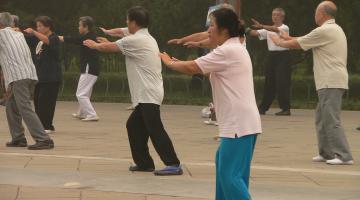Identifying and Managing Holiday Relapse Triggers
The holiday season may not be the most wonderful time of the year for people who are struggling with their recovery. Even those who have been in recovery for several years are subject to relapse triggers around the holidays, which can make it a very stressful and anxious time. Managing holiday relapse triggers takes a lot of forethought, which may involve utilizing coping skills and planning ahead so you know what to expect and how to mitigate any triggers.
Knowing Your Relapse Triggers Around the Holidays
Will your Uncle Terrence try to sneak alcohol into your mixed drink because he thinks rehab is for quitters?
Will your Aunt Karen give you a hard time about recovery, telling you why she doesn't think it's worth the money?
Does your boss judge people at the holiday party based on how many shots they take with him?
Do you have a set of mutual friends whose children may not be well disciplined and require constant monitoring in your home?
Does traveling back home fill you with stress and anxiety because you have to drive in bad weather?
Are you worried about all of the holiday expenses you are facing?
Do you struggle with loneliness because you don't have any family or friends nearby?
There is an endless array of potential relapse triggers around the holidays. Managing holiday relapse triggers starts with knowing what yours are.
Managing Holiday Relapse Triggers
Let's look at the examples above:
If your Uncle Terrence will always try to sneak alcohol into your drinks or your Aunt Karen will give you a hard time about recovery, reconsider going to any family event where they are present. it might not be worth the potential triggers and stress, especially if they don't respect your sobriety.
Similarly, if you have a boss who judges people based on the number of shots they take, reconsider going to the office party.
If you have a friend whose children drain you of all your energy and your willpower, don't risk a relapse because of unnecessary stress. Throw a holiday party that's only for adults so the children don't come, or host an activity outdoors where the children can run around and play.
If you are worried about travel, use mindfulness or meditation tips to help ease your anxiety. Allocate extra time behind the wheel and take breaks often to stretch.
If you are worried about holiday expenses, host a free activity yourself, like an indoor movie night with your close friends, or tell your family that you'd rather do a single gift exchange so you don't have to buy gifts for everyone.
If you are struggling with loneliness, consider volunteering to help those who are also in need and find better connections in your community.
Managing holiday relapse triggers will be unique for everyone because of the unique circumstances, but one thing that remains the same no matter the holiday triggers is the need to apply self-care and coping strategies to stressful situations.
Managing Holiday Relapse Triggers with Self-Care
Self-care is a great way to regulate stress and avoid holiday relapse triggers. Self-care should be the same type of care you exercise year round, including:
- Taking time for yourself
- Setting boundaries
- Saying no
- Exercising
- Eating healthy foods
- Meditation
- Journaling
- Practicing good sleep hygiene
Self-care might mean turning down an invitation because you know that situation is too vulnerable for you or leaving a party early because you don't want to disrupt your sleep hygiene process.
Managing Holiday Relapse Triggers with Coping Skills
Coping skills can help you when things are particularly stressful. Activities like journaling offer an opportunity to reflect on how you feel. During particularly stressful seasons like the holiday season, it's important to take stock of what you're feeling and trace those feelings back to their source.
Other coping skills like meditation can offer practical tools you can turn to the moment you are triggered, no matter where you are. Meditation can help you breathe through Aunt Karen badgering you or children running underfoot.
Practicing open communication can be a coping skill that enables you to express why you are staying sober to those in your close family or group of friends.
Controlling Relapse Triggers around the Holidays with Support
If you are looking for help controlling your relapse triggers around the holidays, don't be afraid to reach out for professional support. There is no wrong time to start a detox or outpatient treatment program to tackle addiction or mental health disorders.
Promont Wellness can help you develop self-care routines and coping strategies that work best for you. Clients at our Philadelphia outpatient rehab can find active sober communities with whom they can engage during the holidays through alumni and aftercare programs.
We provide alcohol rehab in Philadelphia as well as dual diagnosis treatment that works with your holiday schedule. With these programs, you can curate new strategies to deal with triggers, not just during the holidays but all year long.
Overall, managing holiday relapse triggers comes down to getting the support you need, utilizing self-care, and practicing coping skills that can help you stay happy and healthy no matter what life throws at you.
Let our team help you manage your triggers and spend a brighter, happier holiday at home.
More to Read:
Previous Posts:








